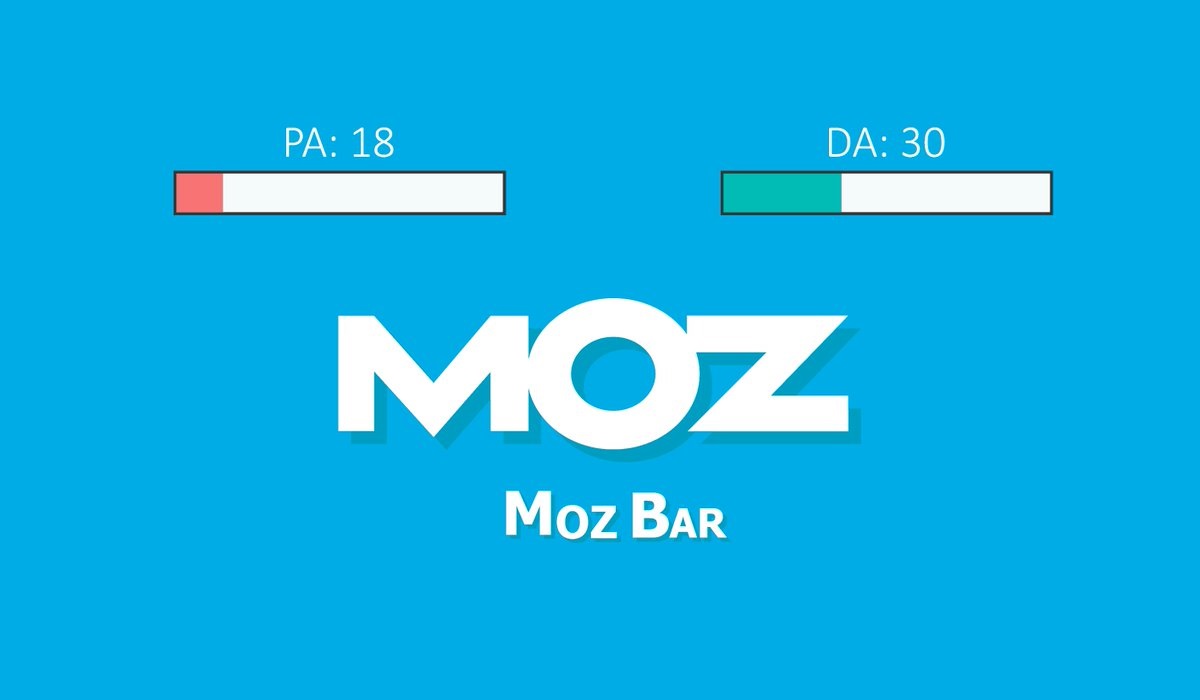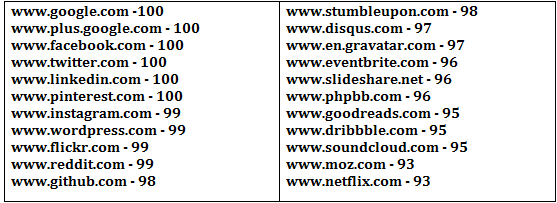Domain authority is something you do not want to overlook if you’re trying to rank your website on Google, Bing, or one of the other search engines populating the online world. Here’s why.
The Ins and Outs of Domain Authority
Domain authority is a metric developed by Moz that evaluates over 40 factors to determine a website’s ranking in a search engine. In simple terms, it’s a search engine ranking score between 1 and 100 that predicts how well your site will rank in SERPs (search engine response pages).
Keep in mind that it’s a prediction and search engines like Google don’t explicitly use domain authority to rank sites. It is a strong prediction though, as the same or similar metrics that determine domain authority are also used to rank websites. Therefore, while it’s not a part of PageRank or another one of Google’s algorithms that determine ranking, you can use it concurrently to receive similar predictions.
Going back to specifics, it’s one of the most important factors in the SEO world, and the higher the score the higher the chance that you’ll achieve high rankings. It also tends to fluctuate a bit because of the many factors that go into it, and for the same reason it’s very difficult to achieve a perfect 100 DA score.
How to Check Domain Authority
Performing a domain authority check is quite simple. You can use the domain authority checker Moz provides in their MozBar, a Chrome extension that functions as an overall SEO toolbar, or do a Google search and use one of the other DA checkers online. Here’s what you’ll have to do:
- Find a DA checker with Google or by following the MozBar link above
- Enter the URL of the site you want to check
- That’s it! Pretty simple, right?
How to Increase Domain Authority
If you want to know how to increase domain authority fast, then you’re in for a rude awakening. And to be honest, the only way to actually improve it is by improving your site’s overall SEO and link profile, so that’s what we’ll do today.
Neil Patel, digital marketing extraordinaire, suggest five steps that will help you improve your site’s link profile:
- Ensure that your technical SEO is in place
- Create a list of linkable content
- Develop strong internal linking
- Regularly monitor toxic backlinks
- Be patient
Let’s take a closer look:
-
- Ensure that your technical SEO is in place
Any good house is built on a strong foundation, and SEO is no different. If you want a strong link profile, you have to make sure that all the technical aspects that go into your site’s SEO are in place:
-
-
- Site structure
- Navigability
- URL structure
- Heading and Meta tags
- Alt tags
- Keywords
- Etc.
- Create a list of linkable content
-
If you want backlinks pointing to your site, you have to have content that people actually want to link to. You need articles, blog posts, infographics, videos, images, etc. You need content that people will look at and think, Wow! This is actually pretty cool and useful. Let me link that so that my audience can benefit as well. Once you have the content, use this link building checklist and start building your links.
-
- Develop strong internal linking
Backlinks may be very important, but so are internal links pointing back to your own site. Think of them as a network of links that connect your site with itself, and that help users and search engines crawl and index it. As Neil says:
A site that lacks internal linking is like a collection of pebbles — disconnected and weak. But a site that has strong internal linking turns those pebbles into concrete — interconnected and unbreakable.
-
- Regularly monitor toxic backlinks
Don’t wait until Google rolls out a new algorithm that penalizes your site to clean up your backlinks. Be proactive instead and take the time out of your busy schedule every now and then and monitor your backlinks. If you’re unsure as to whether not you need to do so, take a look at this video.
- Be patient
Finally, be patient. Rome wasn’t build in a day and your site’s domain authority won’t increase overnight. There’s a lot involved and like your credit score, the older a domain is the higher its domain authority will be. This doesn’t mean that you’ll automatically have a high score if you’ve had a domain for years, but all things considered, it will be higher than if it were brand new.
List of High Domain Authority Sites
So, what is a good domain authority score? Like grade school, high DA websites have a score of 100. And as we just covered, achieving this score is quite difficult, so don’t be sad if your site doesn’t match up. Something to keep in mind, domain authority is a relative score, and there’s actually no real good or bad score.
With that in mind, let’s take a look a some sites with high domain authority:
These are websites with high domain authority links and getting a backlink from them will increase your own domain authority, so make it a goal to do so.
Final Thoughts and TL;DR
Don’t forget that black hat SEO tactics like spamming links will decrease your site’s domain authority, and getting links from sites with high DA will improve it. If you want to clean up your links, request their removal or disavow them. If you want to gain high quality links, create high quality content that deserves to be linked or get in touch with an SEO agency that has high authority connections.







Tell us your thoughts in the comments